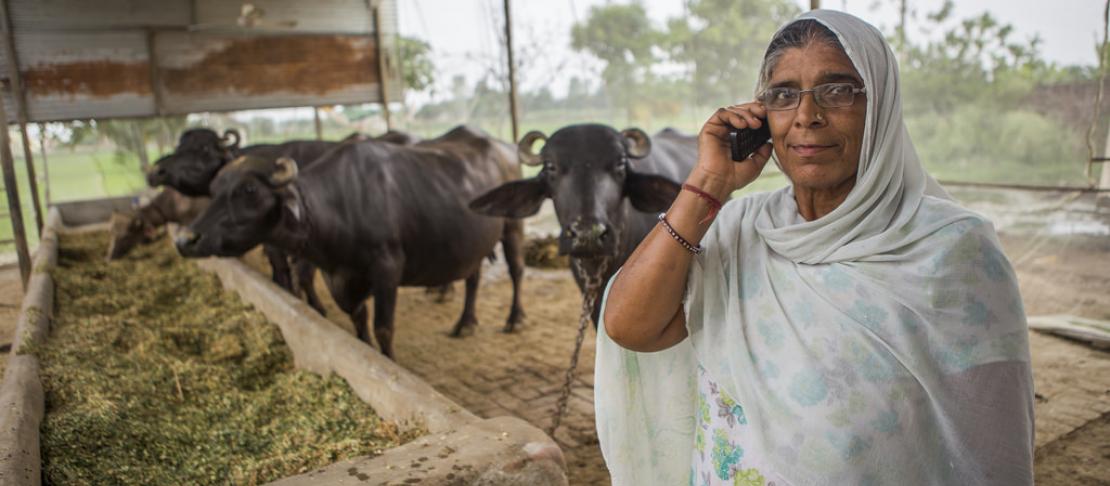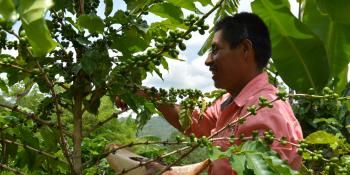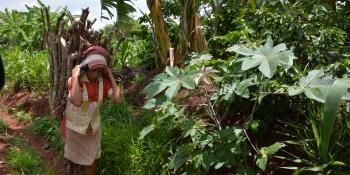Scaling up Climate-Smart Villages in India

Summary
The research was implemented in collaboration with the International Maize and Wheat Improvement Center (CIMMYT) and the International Food Policy Research Institute (IFPRI).
CCAFS Climate-Smart Villages (CSVs) have successfully combined global knowledge with local action to help farmers sustainably produce more food, while curbing greenhouse gas emissions and increasing resilience to climate change. In CSVs farmers and researchers test and implement portfolios of climate-smart agricultural practices, technologies, and services, which can be combined together to make the best out of an increasingly difficult situation. In the Indian state of Haryana, farmers have implemented climate-smart practices such as laser-land levelling and alternate wetting and drying of rice, reducing water use, improving soil health and bringing economic rewards. Farmers have also been receiving agro-advisories on their mobile phones, with inputs from met departments, scientists, input dealers and farmers, which allow them to make timely decisions.
Due to the success of CSVs, the State Government of Haryana has kick-started a program to launch an additional 500 CSVs in the state’s rice-wheat systems. The program will be implemented by the Department of Agriculture, Government of Haryana through integrated investments. A planning workshop with the most important stakeholders has already mapped out the range of schemes which will be used within the villages. CSVs are catching on across the country, with new proposals for developing CSVs across five other Indian states, on over 237,000 ha of land. These states are particularly vulnerable to climate change, and the International Food Policy Research Institute (IFPRI) has developed and submitted pilot projects worth USD 140 million as part of the CCAFS program.
Key facts
- CSVs are important vehicles for putting climate-smart agriculture into action
- 500 CSVs will be launched in Haryana’s rice-wheat systems
- Proposals have been submitted to develop CSV pilot projects across 5 other Indian states, on over 237,000 ha
Lessons: key elements of success
- Evidence for the CSVs was generated through the validation and adaptation of climate-smart agriculture (CSA) practice portfolios
- A six-pronged strategy was employed to influence the policy making process, involving one-to-one interactions with stakeholders
Further reading
Related research outputs
- Aryal, JP, Bhatia M, Jat ML, Sidhu HS. 2015. Impacts of Laser Land Leveling in Rice-Wheat Systems of the North-western Indo-Gangetic Plains of India. Food Security 7: 3.
- Taneja G, Pal BD, Joshi PK, Aggarwal PK, Tyagi NK. 2014. Farmers’ preferences for climate-smart agriculture: An assessment in the Indo-Gangetic Plain. International Food Policy Research Institute Discussion paper, Vol. 1337. Washington D: IFPRI.


